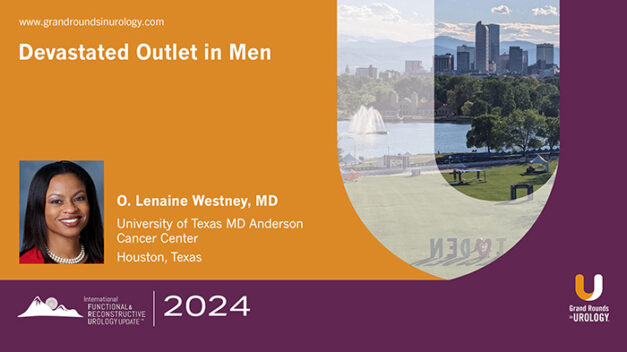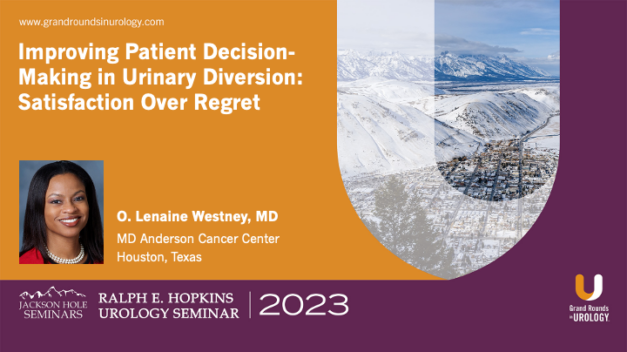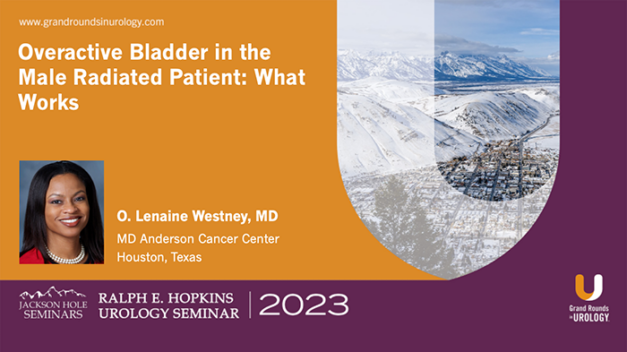Devastated Outlet in Men
O. Lenaine Westney, MD, focuses on managing a “devastated outlet” in patients, typically those who have undergone treatments for prostate cancer. The 11-minute presentation highlights how factors such as radiation, High-Intensity Focused Ultrasound (HIFU), and multiple manipulations to treat urinary tract issues can lead to severe complications.
Radiation’s impact on the lower urinary tract is a key concern, with fibrosis and ischemia developing over time. Dr. Westney shares images of recto-urethral or pubic-prostatic fistulas, which are associated with a high morbidity rate and often necessitate complex surgical interventions, such as cystectomy and urinary diversion. The difficulty lies in predicting which patients will develop these severe complications.
Westney emphasizes the importance of early intervention and the potential need to rethink treatment strategies. She also discusses future directions, including the possibility of identifying patients who are more likely to suffer from radiation-induced complications through genetic markers or other predictive tools.





